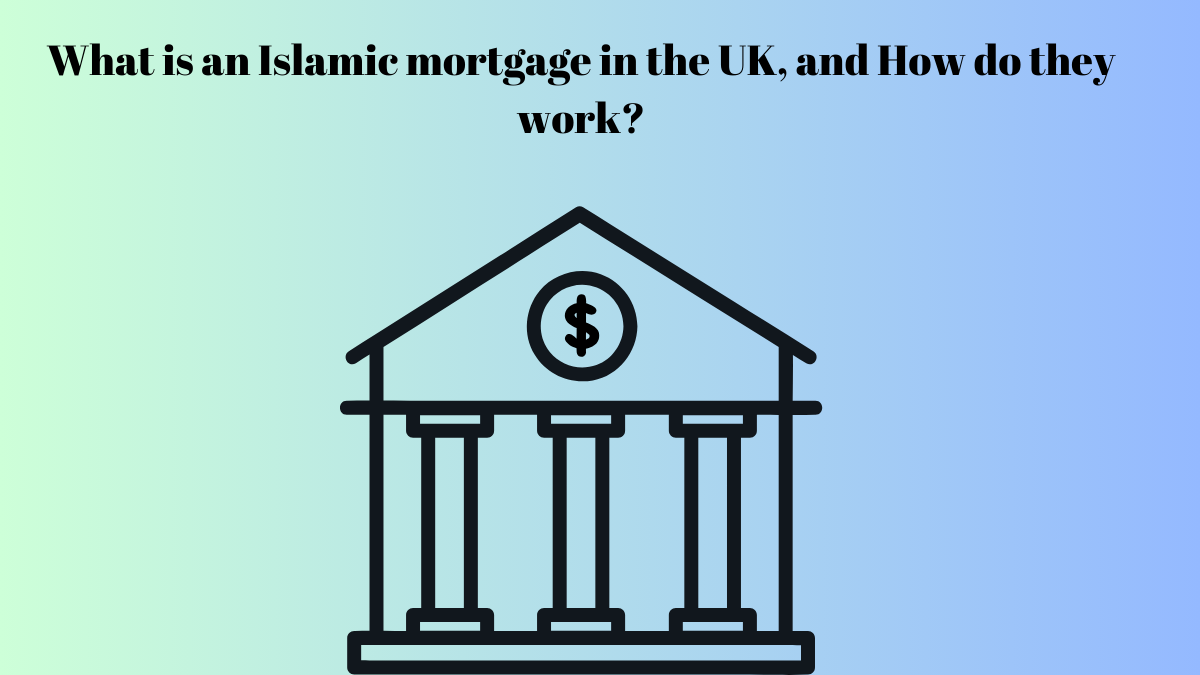An Islamic mortgage may interest you if you seek alternative options for purchasing real estate in the UK without paying interest. A Sharia-compliant mortgage, or an Islamic mortgage, is a type of purchase plan for a home in which riba (interest) cannot be charged or paid.
In the Shariah context, an Islamic mortgage is not a mortgage as we know it in the Western world but rather an arrangement between you and the bank to buy the property and grant you living until you pay off the purchase consideration.
Also, you pay rent to the bank, which is the source of the profit as you live in the property. In this article, we are going to discuss types, advantages, and disadvantages of Islamic Mortgages:
Contents
types of Islamic mortgages
In the UK, there are different forms of Islamic mortgages which are based on how ownership and rent are structured. Here are some of the most common ones:
- Ijara: In this kind of Islamic mortgage, the bank purchases and owns the property and rents it to you for an agreement period. You make a monthly fixed payment, which is part of the purchase cost and rent. When the term comes to an end, you can purchase the property from the bank after merely paying the outstanding balance.
- Diminishing Musharaka: In this form of Islamic mortgage, you and the lender are joint owners of the property and your share increases as you pay monthly instalments. The bank has an interest in the property, and you pay rent on its share, which diminishes as you buy more equity. When the term ends, the property is entirely yours.
- Murabaha: In this form of Islamic mortgage, the bank purchases the property and sells it to you at a higher price, including its profit margin. In this, you pay the amount in instalments over a set time period without rent. Islamic mortgages of this kind are not widespread in the UK because this can cause more taxes and fees.
What are the benefits of an Islamic mortgage?
One advantage of an Islamic mortgage is that you do not have to pay interest, which is illegal in Islam, and that you get more certainty and transparency with your payment, as they are fixed and agreed upon in advance.
The Financial Conduct Authority (FCA) and the Financial Services Compensation Scheme (FSCS) help in getting protection and regulation from the hands of the government, and the Islamic banks and conventional banks are also covered under this protection.
What are the risks of an Islamic mortgage?
The disadvantages of an Islamic mortgage include the fact that they may be more costly than the conventional mortgage, as they may have higher fees and charges, and unfavourable flexibility and choice, as limited providers and products are available in the UK.
If you want to obtain an Islamic mortgage in the UK, you should compare the available products and the providers to find the best product for your needs and circumstances. Furthermore, you should also consult with an experienced Islamic finance adviser and a Sharia scholar who can confirm the Sharia compliance of your preferred product.
For Muslims and other people who want to purchase property in the UK on an interest-free basis, an Islamic mortgage can be a good alternative. However, it is necessary to consider the functionality and the essence of such programs before making a choice.
Some FAQs
What is an Islamic mortgage?
A halal mortgage is a form of Islamic or Sharia-compliant financing and does not allow the charging or payment of interest.
What is an Islamic mortgage?
Islamic mortgages do not have to charge interest, but instead, there is a principle of shared ownership and rent. The bank purchases the property, and the borrower pays rent on the portion he or she does not own and gradually reduces the bank’s share.
- Indemnity Insurance: What You Need to Know When Buying or Selling Property in UK
- Leasehold vs freehold: What’s the difference?
- Pension Credit: New Rules Coming in May
- All About A Form E
- 7 of the best equity release interest rates providers in the UK
- How much are estate agent fees? Here’s everything you need to know
- DWP Cold Weather Payment- Full List of Eligible Areas

I am a dedicated lifestyle and fashion enthusiast, always looking for the latest trends and timeless styles. With a flair for creativity and a passion for self-expression, I provide fresh insights and tips on elevating everyday living and personal style.
